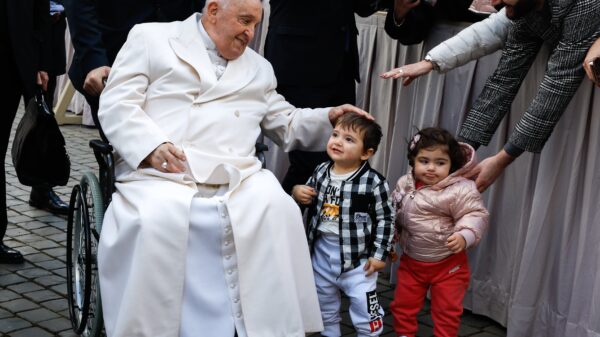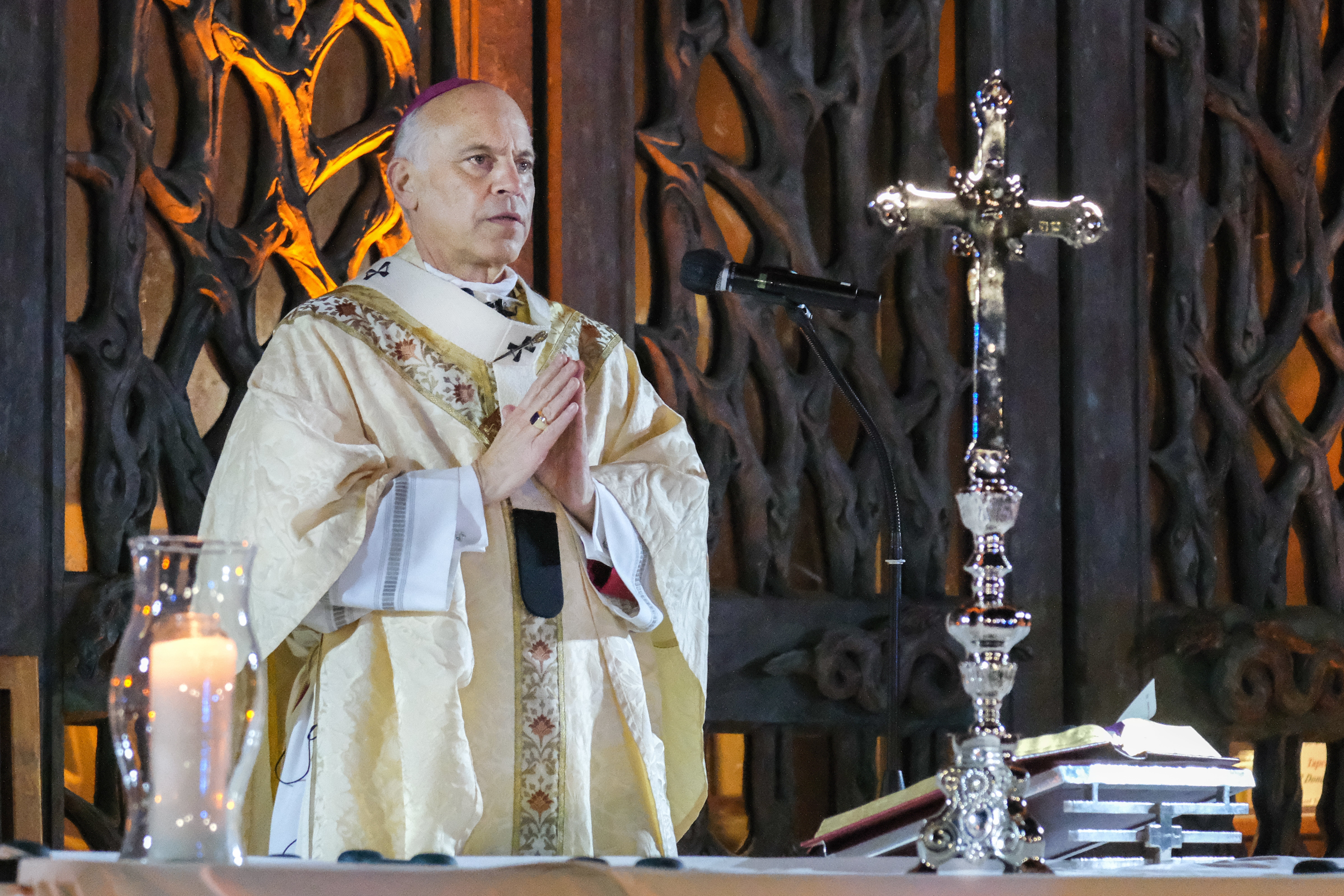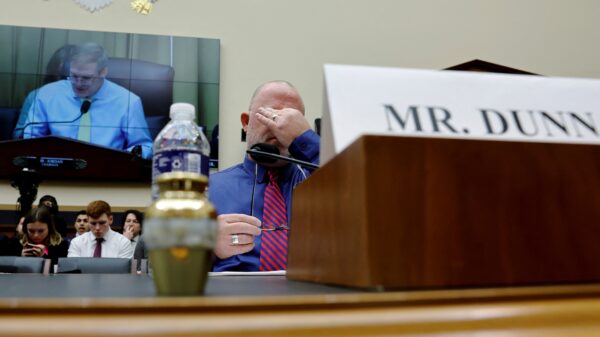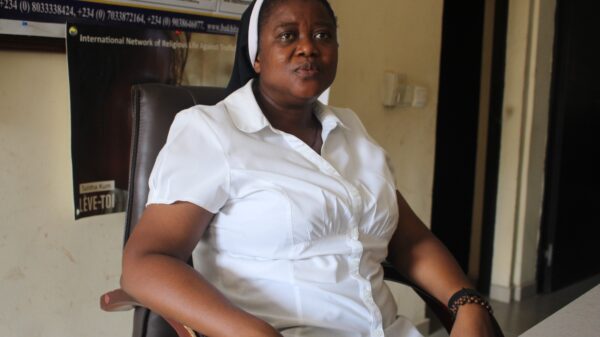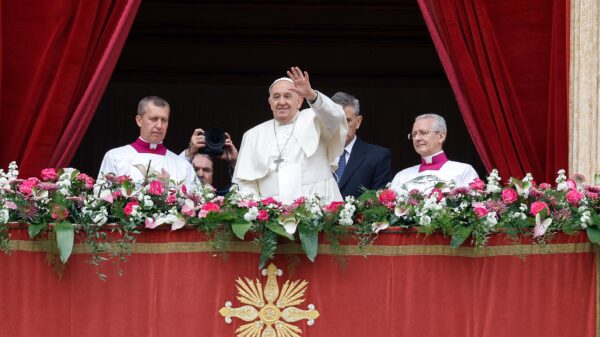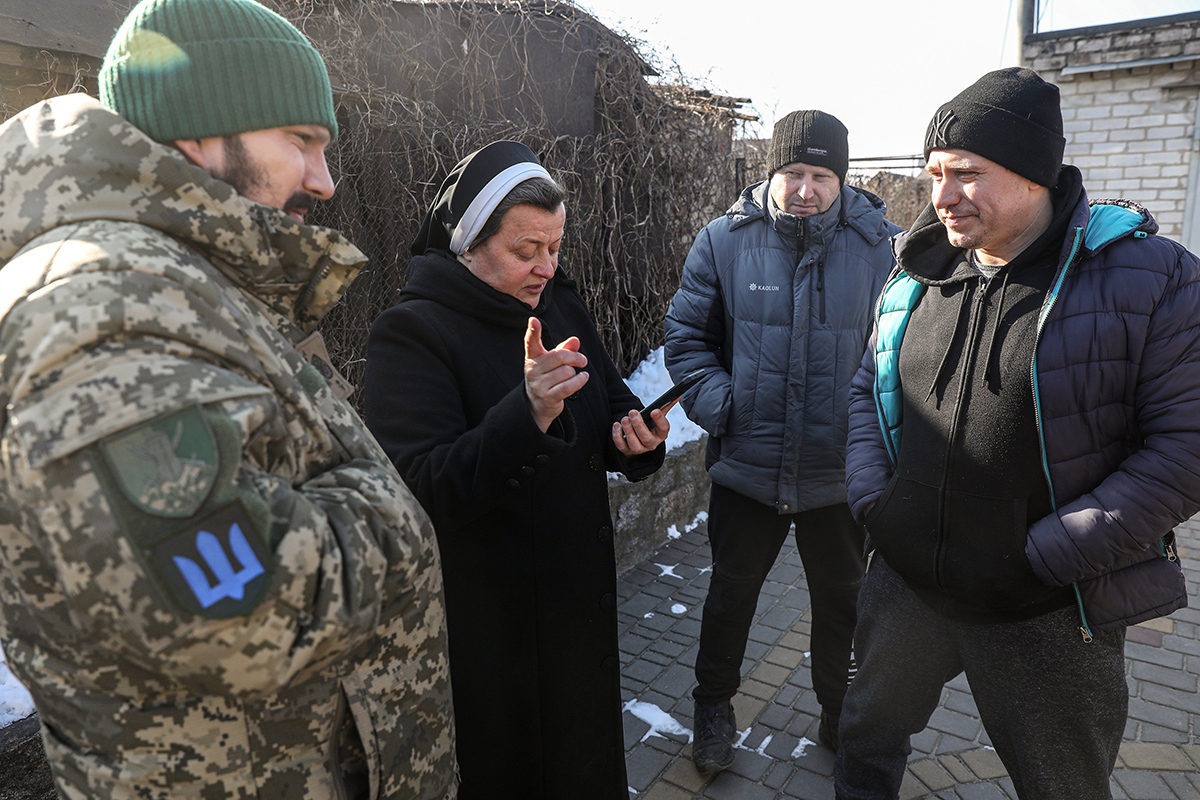(OSV News) — Ivan Smyglia and Denys Kurpikov say they had “no other option” but to assist in delivering food and much-needed supplies to some of the hardest-to-reach and most dangerous places in a country at war.
“Together with Sister Lucia, we often went into a ‘gray zone.’ These are the villages on the front line, between our army and the army of the Russian Federation — territories that Ukraine does not control,” said Kuprikov in an interview in Zaporizhzhia in southeast Ukraine.
Kuprikov was referring to Sister Lucia Murashko, a member of the Sisters of the Order of St. Basil the Great of the Ukrainian Catholic Church. Sister Murashko lives in a monastery in Zaporizhzhia, with other Basilian sisters who serve at the local Ukrainian Catholic parish. The sisters, too, have been providing humanitarian aid within their parish community, as well as to the civilians and Ukrainian soldiers on the front, only 30 miles away, since the war began Feb. 24, 2022.
Smyglia was running a successful company, Ivan-taxi, in 10 Ukrainian cities and in Warsaw, Poland, when Russia launched its full-scale invasion of Ukraine.
“When the war started, my team and I had no other option. I had a feeling deep inside that we needed to help,” he said. “And together with friends, we took our cars and some savings that we had — called some people, some people prepared food — and we started to deliver aid to our military.”
The two men have been delivering humanitarian aid full time to Ukrainian soldiers and civilians on or close to the front line ever since. Smyglia said his unofficial humanitarian aid initiative began very simply. “I just wrote a message on my apartment building’s chat app: ‘Please bring whatever you can.'”
At first, people brought large shopping bags filled with goods. “But after a month or two, people got tired,” he said. They “started thinking about their own needs” and donations started to dwindle.
“Then, just when we thought that we couldn’t do any more, somehow — I don’t know, maybe it was destiny — we met Sister Lucia,” said Kuprikov. “And we came to an agreement that she would help us.”
Last July, the sisters began providing Smyglia and Kuprikov with a variety of supplies, including food, clothing, mats, sleeping bags and electric generators. Any time they told the sisters about the needs they encountered in the field, “the answer was: ‘Send us a list and we will take care of it’,” said Smyglia.
“They always loaded us up with so much,” he said, his voice cracking with emotion.
Kuprikov recalled once driving into the “gray zone” under mortar fire with Sister Murashko.
“It was difficult, frightening,” he said. “I remember we brought food to one old man and mortar exploded close by. I had a 40-lb bag in my hands and I jumped on the spot.
“Sister Lucia took my hand and said, ‘Everything is OK. God is with us.’ These were not words I paid much attention to before,” he said. “But now, when I’m driving alone or when I’m together with Ivan and there are some difficult circumstances, I recall Sister Lucia’s words and I feel better.”
Smyglia said it was impossible for him to calculate the amount of aid they had delivered to soldiers and civilians, including in villages where local authorities have been unable to provide assistance, such as Preobrazhenka, Novodanylivka and Mala Tokmachka.
“There were old men and women, who were not able to leave the villages,” said Kuprikov. “Many people had been without water or electricity for several months by the time we arrived.”
Smyglia’s experience with the Basilian sisters and the Ukrainian Catholic Church this past year also started a “new page” in his life.
“I had really no clue about the church, the faith, and my opinion about all of that,” he said. “I didn’t understand it. There was no one to teach me when I was little.”
After reevaluating his life and faith in light of the war, he decided to propose to his wife of 21 years that they marry in the church.
“Our marriage will be stronger I think,” he said. “I love my wife and my children very much — they are my soul and my heart — I cannot imagine my life without them, but we should be wed in the eyes of God.”
Laura Ieraci is assistant editor of ONE magazine, the quarterly magazine of the Catholic Near East Welfare Association. Contributing to this story was Konstantin Chernichkin in Zaporizhzhia, who conducted the interviews in Ukrainian.



